This October is Black History Month, a month dedicated to celebrating black people in the UK. Although we should honour them throughout the year, it provides a special focus on their lives and experiences.
We’re honouring our own staff and students at Newcastle by speaking to them about their interests, likes and dislikes and aspects of their culture, to learn more about their stories and histories. For our third blog in the series, we spoke with Nicole Akuffo, a stage 3 Dentistry student, to find out about her experiences and interests, both in and out of university.
How did you end up in Newcastle?
I was researching into studying Dentistry because that’s what I wanted to study first, and Newcastle was one of the universities that allowed a transfer scheme from Oral Hygiene into Dentistry – I wanted to be in that specific part of Dentistry, but I also wanted to have the option to transfer if I then wanted to just do Dentistry. Newcastle was probably one of the only universities that I believe, at least back then, allowed for that so I definitely wanted to come to Newcastle.
What are your main hobbies and interests outside of your course?
I like singing, and I like dancing as well. I’ve actually recently joined Pole Dancing Society! I watched the movie, Hustlers (a film about pole dancers during the Wall Street economic collapse) and I was like you know what, I want to do that! So I’ve joined that society, it’s so good – it’s great for your core and everything so I’m really enjoying that. I’ve also joined the African and Caribbean society as well so sometimes we have game nights or talent shows, or even sports things – I don’t play any sports but I go to watch and it’s so fun.

What would you regard as your proudest achievement?
Before now, I would probably say… I got a Blue Peter badge when I was in Year 6 that so was my big achievement, I was telling everyone about it. I wrote a poem; back in the day I went through phases where I wanted to be everything. I started off thinking that I wanted to be a writer and then I wanted to be a poet, so I wrote a poem and handed it into my school teacher. She asked if I watched Blue Peter and said I should go online and submit it to them. They ended up reading it out on the show and then sent me the badge afterwards! It was honestly like my five minutes of fame, it was the best thing ever.
Now, I would say probably getting into Dentistry, getting in and studying the course that I’m on now would be my proudest achievement thus far.
What would you say is the biggest challenge you have faced?
I would say sometimes… because obviously I’ve come to a predominantly white area, I’ve never really experienced racism outwardly, but I’ve definitely had experiences with people that are very ignorant, purely because they’re not educated on certain ways or behaviours that trigger people of colour. So being in situations like that – being on my course, there’s three black people and some people just don’t quite understand the weight that that carries sometimes, and the mannerisms in which they can speak or say certain things can be very triggering. But you don’t want to then be, like, screaming at people and making people feel uncomfortable – even though you feel uncomfortable by what they’ve done – purely because you understand that they don’t understand what they’re saying and why it hurts you. So that I would say is the biggest challenge that I am now facing, with that feeling of wanting to educate them, but I’m also not a teacher to be educating someone on these things. So I don’t know – it’s a sticky one. I’m still trying to figure it out.
What inspires you?
I’d say my parents, both my mum and my dad. They were born in Ghana in Africa, and then they came over to the UK; my dad and my mum have made a life for themselves and I feel like everything I do I owe to them. My dad’s a doctor now, and he obviously was pushing for us to become the best that we could be, so I would say they are definitely my inspiration. Just seeing how they’ve… I wouldn’t say they’ve come from nothing but I know my mum and dad very much struggled growing up – so seeing that if they’re able to do what they’ve done, I feel like I am also able to do whatever I want to do.
Can you give me a selection of your favourite things from your culture?
In terms of media.. right now I would say Beyoncé, I actually have a top on right now that says Beyoncé on the back! She recently made an album, because she’s linked to the Lion King movie that she was in, she’s made a kind of African, afrobeat album collaborating with different types of African artists and has amalgamated it into this beautiful artwork. There’s a song called Brown Skinned Girls and I just think what she’s doing now is so empowering, for people to love and be happy in their own skin, you know?
In terms of food and culture and everything, I would say my favourite thing about being African is the parties, the food, the social aspects. It’s just crazy – when I go back to London, to an auntie’s party or something and seeing the vibrant colours, the robes and clothes that we wear. There’s something called Kente cloth which is a type of cloth made in Ghana and knitted in a specific way. I love seeing how people have different outfits made from that and stuff – we try to modernize it as well. I made a crop top and flared trousers from Kente cloth because I wanted to put more of a Western twist on it as well, linking it. People love the African Kente cloth, and I think people need to feel more confident in wearing it.
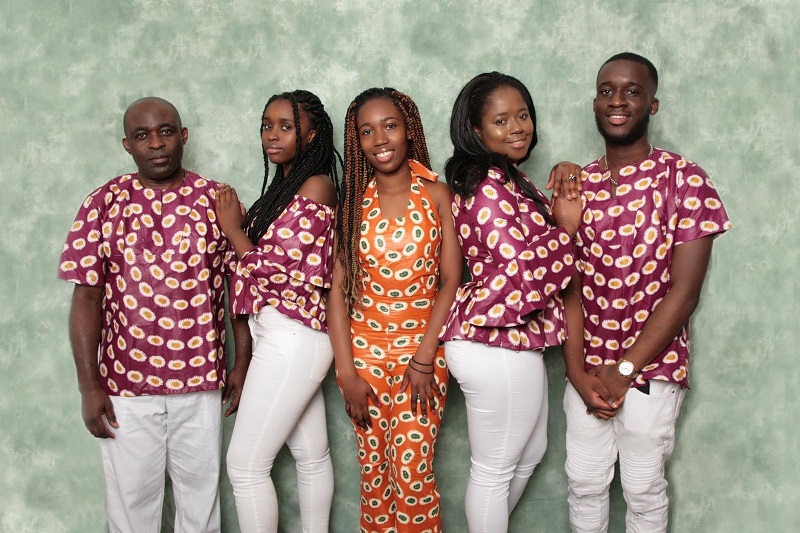
What do you think about when you hear Black History Month?
I feel like my idea of Black History Month has changed now – back in the day I would always think of the history – growing up, in school for Black History Month we had to draw portraits literally every year. One year I drew Nelson Mandela, the next year I was drawing Rosa Parks and it was all about learning the history behind all of that. Now, I would say that it’s more of a celebration of where we are now. Like how in the university now, there’s the campaign called Black Is Gold, and I think it’s amazing. Sara and my other friend Rabs have done really, really well in trying to glorify everything and not make everything so, sort of, doom and gloom. They’re trying to put a new spin on it with the fashion show, the closing party that’s happening… There was also this thing I was involved in called BlackChat, where it was kind of putting a funny spin on certain things that we face every day and have to put up with and just vocalizing that. People were coming up to me on my course being like, “Oh my god, I saw that talk thing that you did, I didn’t know that you felt like that!” And I’m like, yeah, I don’t really make it open to everyone – but it’s so cool that these videos came out for people to see it and understand a bit more.
Thank you so much to Nicole for taking the time to speak to us, we hope you enjoyed reading all she had to say, and getting to see those gorgeous outfits! Make sure to check out our previous blogs with Sara and Anne if you haven’t already.
Black History Month is soon coming to an end, but we would still love to speak with anyone who would be interested in talking to us about themselves as part of this series. If you would like to take part or even write your own blog post, please contact Claire Bailie!



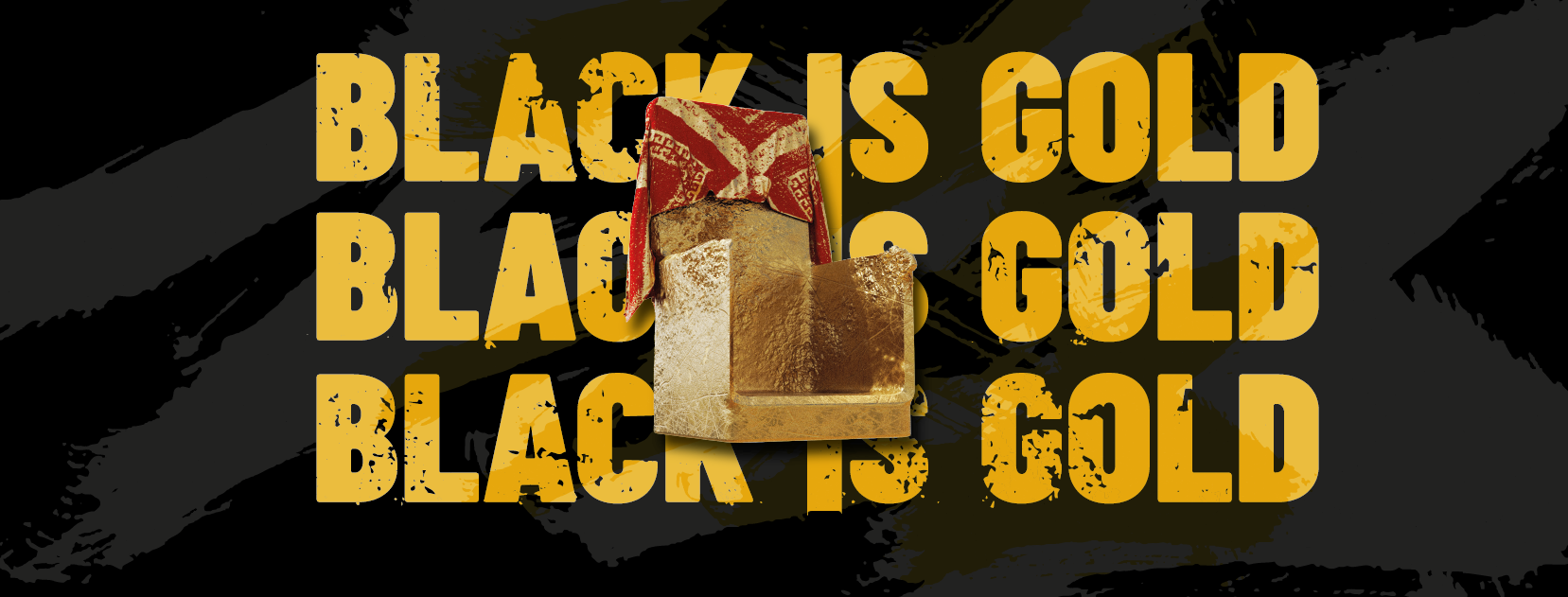
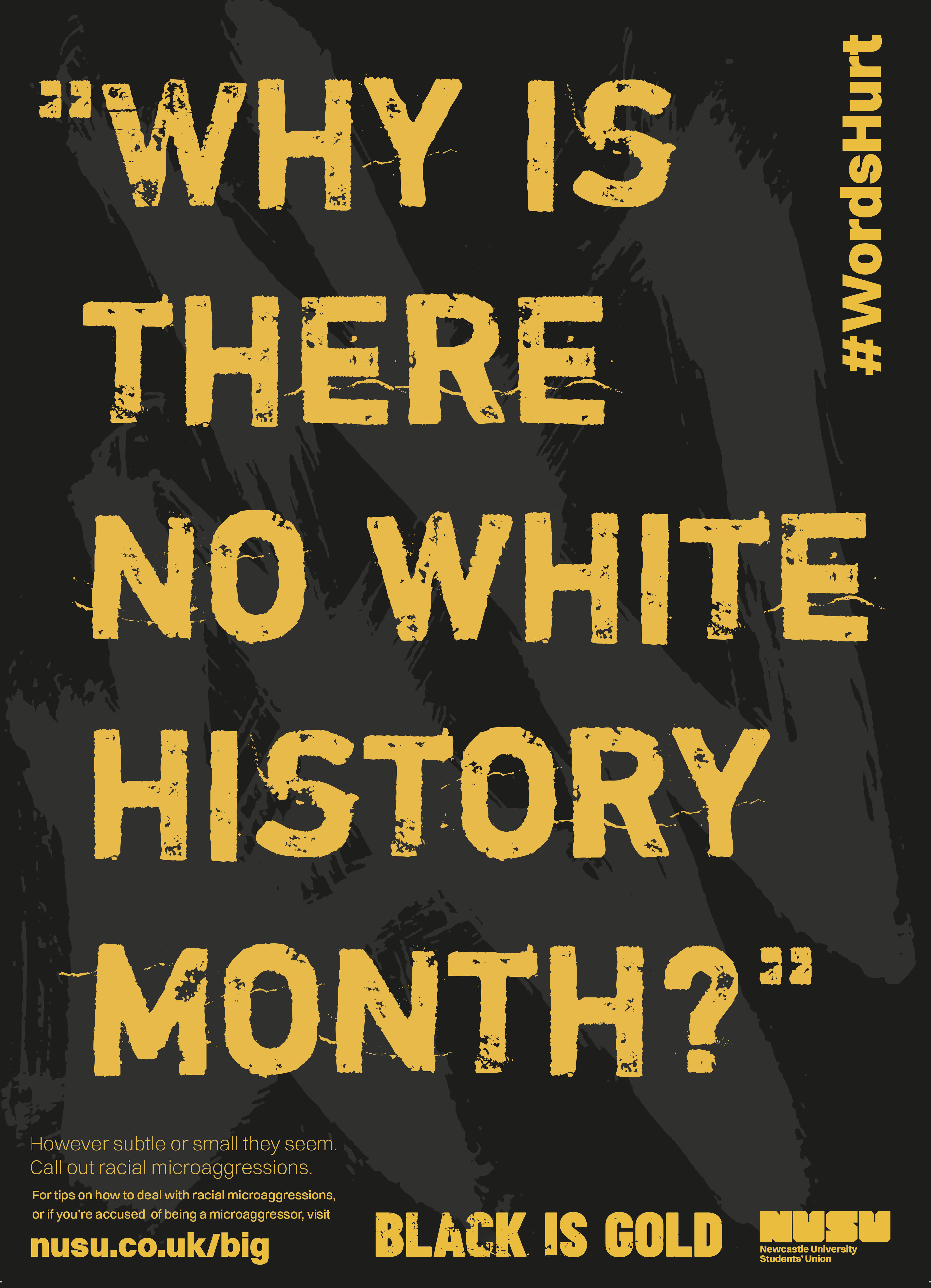
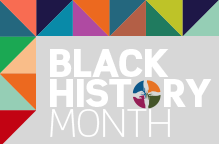 This October is Black History Month, a month dedicated to celebrating the history, achievements and contributions of black people in the UK. Although we should honour the successes throughout the year, it provides a special focus on their lives and experiences.
This October is Black History Month, a month dedicated to celebrating the history, achievements and contributions of black people in the UK. Although we should honour the successes throughout the year, it provides a special focus on their lives and experiences. 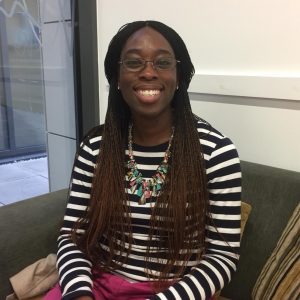 I completed my PhD in Dermatology followed by a couple of postdoc positions in this department. I then joined the Neuromuscular team within the John Walton Muscular Dystrophy Research Centre (based at the Centre for Life) as the Post-marketing Surveillance Coordinator. In this role, I was responsible for supporting pharmaceutical companies with Phase IV studies for their licensed therapies. I was keen to gain more hands on experience setting up and delivering a clinical study, so I moved to the Stroke Research Group, where I am coordinating a clinical study evaluating the diagnostic accuracy of a point of care device. All the expertise, knowledge and experience I have gained over the last decade have been extremely valuable and helped me to secure my new role (which I’ll start in December 2019) as the Programme Manager for medical devices, diagnostics and digital technologies within the
I completed my PhD in Dermatology followed by a couple of postdoc positions in this department. I then joined the Neuromuscular team within the John Walton Muscular Dystrophy Research Centre (based at the Centre for Life) as the Post-marketing Surveillance Coordinator. In this role, I was responsible for supporting pharmaceutical companies with Phase IV studies for their licensed therapies. I was keen to gain more hands on experience setting up and delivering a clinical study, so I moved to the Stroke Research Group, where I am coordinating a clinical study evaluating the diagnostic accuracy of a point of care device. All the expertise, knowledge and experience I have gained over the last decade have been extremely valuable and helped me to secure my new role (which I’ll start in December 2019) as the Programme Manager for medical devices, diagnostics and digital technologies within the 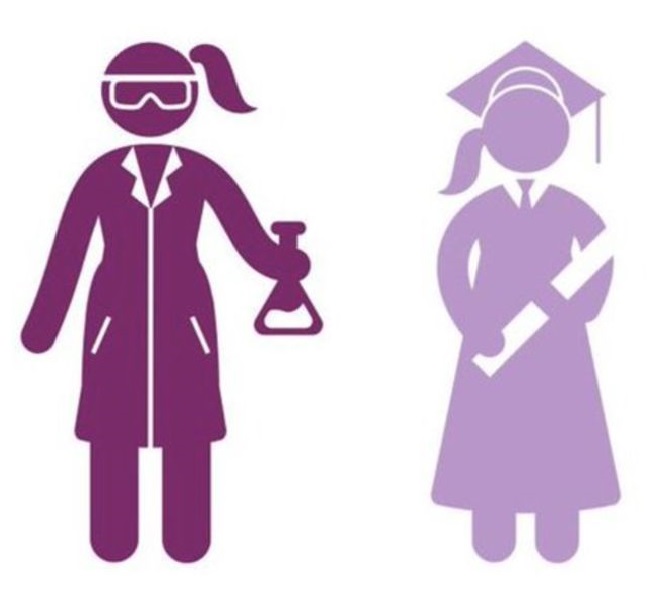 Completing my PhD thesis!
Completing my PhD thesis!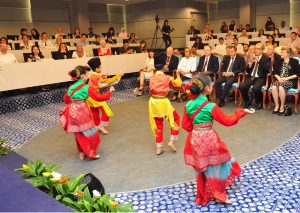 On 21st September 2019, Newcastle University Medicine Malaysia (NUMed) turned 10. Since welcoming its first cohort of students in September 2009, this first international branch campus of Newcastle University has been delivering exceptional medical education in Malaysia, extending the legacy to the Southeast Asian region. NUMed’s global community of students, faculty, staff and alumni convened to celebrate this momentous milestone, which was marked by a medley of local cultural performances and moving speeches by international and local leaders in education. Prof. Baldwin imparted his thoughts on what he observed were the makings of NUMed’s success: the excellence of all its staff, both academic and professional; the cooperation between NUMed, Newcastle University, UK, and NUMed’s partners in Malaysia; and the openness and collegiality of the NUMed community, whether international or local.
On 21st September 2019, Newcastle University Medicine Malaysia (NUMed) turned 10. Since welcoming its first cohort of students in September 2009, this first international branch campus of Newcastle University has been delivering exceptional medical education in Malaysia, extending the legacy to the Southeast Asian region. NUMed’s global community of students, faculty, staff and alumni convened to celebrate this momentous milestone, which was marked by a medley of local cultural performances and moving speeches by international and local leaders in education. Prof. Baldwin imparted his thoughts on what he observed were the makings of NUMed’s success: the excellence of all its staff, both academic and professional; the cooperation between NUMed, Newcastle University, UK, and NUMed’s partners in Malaysia; and the openness and collegiality of the NUMed community, whether international or local.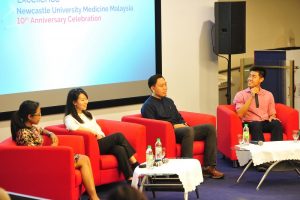 Fast forward ten years, and the FMS EDI Team and the School of Medical Education Academic EDI Lead have been proud to support colleagues at NUMed to form their own EDI committee comprising 11 members of staff, a mixture of PS and academic staff plus two students. The team at Malaysia took the initiative to hold discussions with their counterparts in Reading and Southampton prior to setting up the EDI committee. These two campuses, along with Nottingham and Herriot-Watt, do not have local EDI committees, as a result NUMed has been a trailblazer, as the first campus in the region to look at EDI from a local perspective.
Fast forward ten years, and the FMS EDI Team and the School of Medical Education Academic EDI Lead have been proud to support colleagues at NUMed to form their own EDI committee comprising 11 members of staff, a mixture of PS and academic staff plus two students. The team at Malaysia took the initiative to hold discussions with their counterparts in Reading and Southampton prior to setting up the EDI committee. These two campuses, along with Nottingham and Herriot-Watt, do not have local EDI committees, as a result NUMed has been a trailblazer, as the first campus in the region to look at EDI from a local perspective.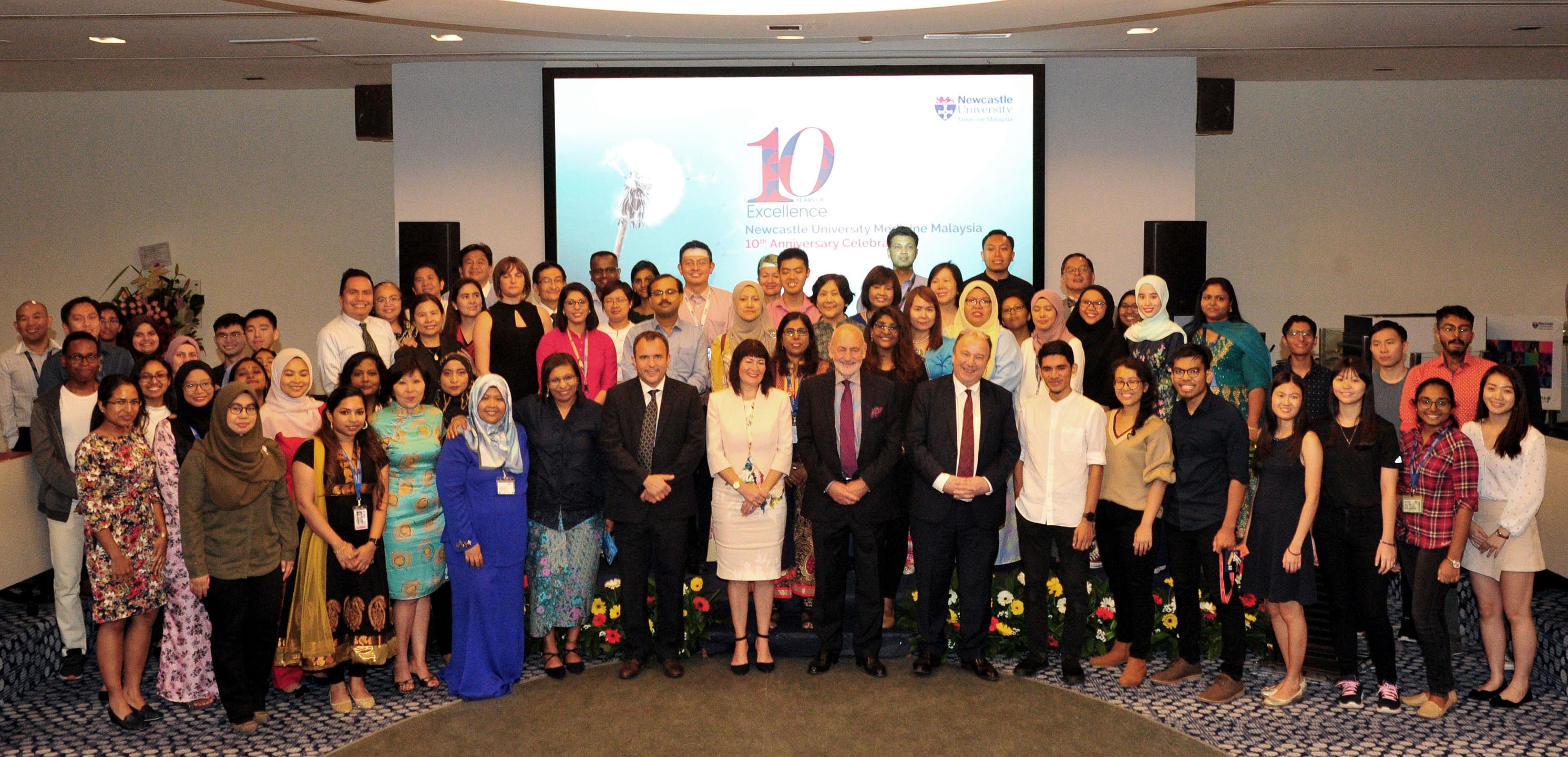
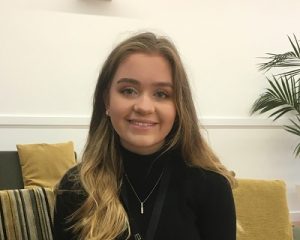 My name is Claire Bailie, I’m from Northern Ireland and I will be working with the FMS EDI team for this academic year. I study Psychology at Newcastle University and am completing this role as part of a professional placement year, before my final year of study in 2020. After applying for a variety of placements I decided that working with EDI was the position I felt most passionately about. My role will mainly consist of assisting on research projects and carrying out communications to help with the promotion of the EDI Office’s work across the faculty. I am particularly passionate about EDI as I have a sibling with a hidden disability, and as a result am very conscious of the impact that a lack of awareness and inclusion around these issues can have, especially within higher education. I am honoured to be a part of the team this year, and will leave you with a quick reminder:
My name is Claire Bailie, I’m from Northern Ireland and I will be working with the FMS EDI team for this academic year. I study Psychology at Newcastle University and am completing this role as part of a professional placement year, before my final year of study in 2020. After applying for a variety of placements I decided that working with EDI was the position I felt most passionately about. My role will mainly consist of assisting on research projects and carrying out communications to help with the promotion of the EDI Office’s work across the faculty. I am particularly passionate about EDI as I have a sibling with a hidden disability, and as a result am very conscious of the impact that a lack of awareness and inclusion around these issues can have, especially within higher education. I am honoured to be a part of the team this year, and will leave you with a quick reminder: